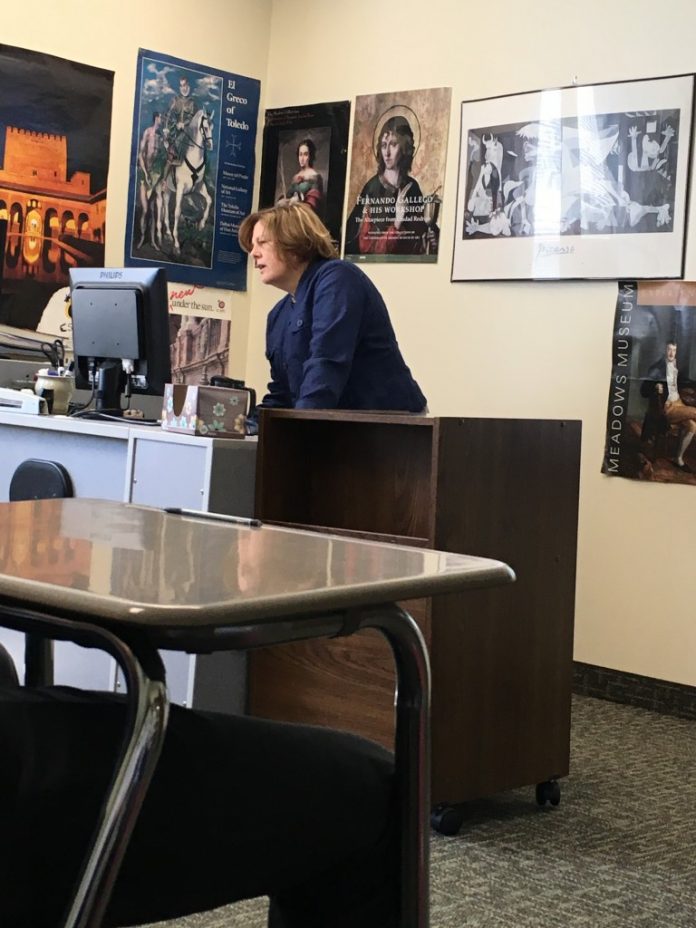The 6th period bell echoes throughout the halls of Jesuit as a sea of boisterous students surges towards the cafeteria. Following in their wake, teachers quietly drift through the cafeteria and into the faculty commons, leaving behind a rowdy world of English, and entering the new, tranquil world of Spanish less than ten feet away. Mrs. Klickman, a Spanish 3 and 4 teacher, takes her seat as faculty members trickle through the doors. Then, the conversation begins.
Klickman, along with other members of the Spanish faculty, has begun hosting conversational Spanish lunches on Wednesdays for faculty members. Catering to the “numerous faculty requests” to learn or improve their comprehension of the Spanish language, Klickman hopes that this program will help teachers achieve fluency.
Describing the general schedule of Wednesday lunches, Klickman recounted the simple, relaxed atmosphere of the faculty commons.
“We just sit and talk. There are usually four faculty members per period with varying skill levels.”
To help promote conversation, Klickman sends out a vocabulary list that guides the conversation. Although some teachers are more comfortable with the language, Klickman thinks the program benefits those who are not as “advanced,” because simply listening “allows them to absorb the language.”
Klickman has also noticed improvements in her frequent participants, such as Mr. Reese, who has been learning Spanish for over a year due to “contacts in Nicaragua.” Furthermore, she believes that one must “have a reason” to learn the language, as once, “it becomes a real means of communication, then you will learn it voluntarily.”
Yet, the Wednesday lunches not only improve Spanish skills, but they also build community within the Jesuit faculty. Klickman enjoys how she can “talk to people [she] normally doesn’t get to talk to” about topics far beyond the initial subject of conversation.
Moreover, Klickman has numerous goals to expand Wednesday lunches in the future. “If we got 8 or 10 people to come regularly, I would consider that a success. I’ve thought about asking some students to participate too.”
Although the program is young, it has already impacted the Jesuit community and improved both the Spanish skills of faculty members and the relationships among teachers, promising to lead to a more diverse and connected community at Jesuit in the future.






